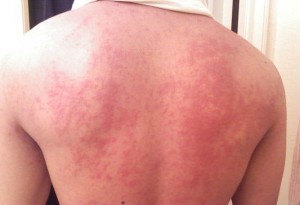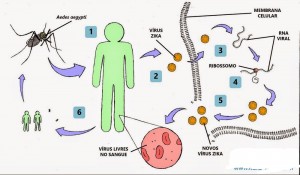Zika is a mosquito-borne disease caused by Zika virus (ZIKV) which exhibits in general a mild febrile illness with maculo-papular rash. Aedes mosquitoes are considered as main vectors, about which we have already discussed earlier.
Birth Defects Linked To Zika Fever in Brazil
Prevention is Better Than Cure
There is no prophylaxis, treatment or vaccine to protect against ZIKA infection. Therefore, preventive personal measures are recommended to avoid mosquito bites during the daytime.
ZIKA virus now seen in over 30 countries, the World Health Organization (WHO) has declared an international public health emergency. World Health Organization chief Margaret Chan has declared the growing Zika virus epidemic a global health emergency.
If you are thinking of avoiding anyone who looks like they have the Zika virus, forget it. You can?t profile people who are infected with Zika. An estimated 75% of infected people have no symptoms. Therefore, to be safe, you?d have to avoid everyone.
Infection Control, Personal Protection and Prevention
Prevention is also based on protection against mosquito bites. Aedes mosquitoes have diurnal biting activities in both indoor and outdoor environments. Therefore personal protection measures should be applied all day long and especially during the hours of highest mosquito activity (mid-morning, late afternoon to twilight).
- Personal protection measures to avoid mosquito bites should be applied when staying in risk areas by
- Using repellents and wearing long-sleeved shirts and long pants especially during the hours of highest mosquito activity,
- Using long-lasting insecticidal treated mosquito bed nets which are essential in providing protection from mosquito bites if the accommodations are not adequately screened or air conditioned,
- Removing mosquito breeding sites in close outdoor/indoor premises.
- Repellent use must be strictly done in accordance with the instructions indicated on the product label. For newborn children under three months of age, repellents are not recommended.
- Travelers, especially children, pregnant women, and people with immune disorders or severe chronic illnesses, should consult their doctor or seek advice from a travel clinic to receive personalized recommendations on use of repellents and protection before travelling;
- Similar protective measures apply to a symptomatic patient in order to prevent transmitting the disease to non-infected mosquitoes.
- When travelling to countries that have mosquitoes carrying the pathogens that cause malaria or Dengue. This includes minimizing the amount of skin you leave exposed, staying in air-conditioned areas that are free of mosquitoes, sleeping under bed nets if you sleeping quarters may have mosquitoes and using proper insect repellent.
Conclusion
Look for insect repellents with DEET (diethyltoluamide), which tends to be more effective against mosquitoes that carry disease. On this website, the U.S. Environmental Protection Agency (EPA) offers guidance on insect repellent selection.
Without taking the above precautions, you will find it difficult to avoid mosquito bites. In fact, many mosquito bites are undetectable. Just because someone doesn?t have obvious bites, does not mean he or she hasn?t been bitten.




